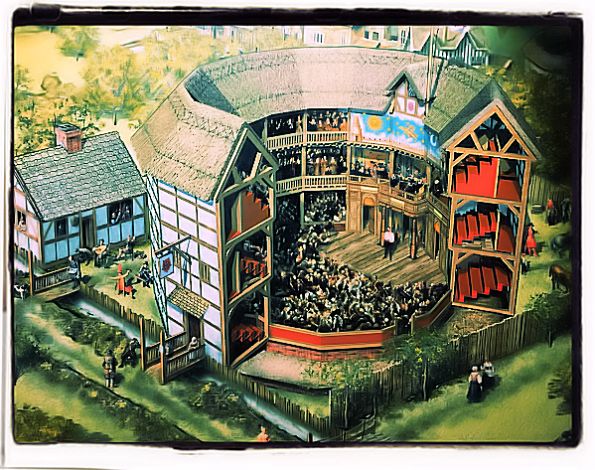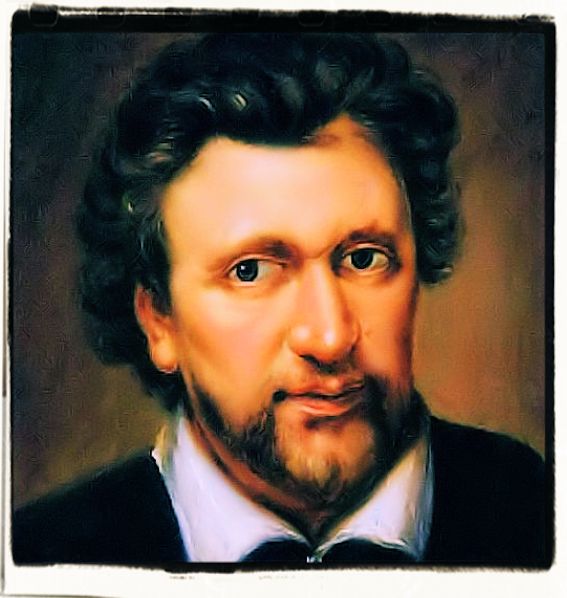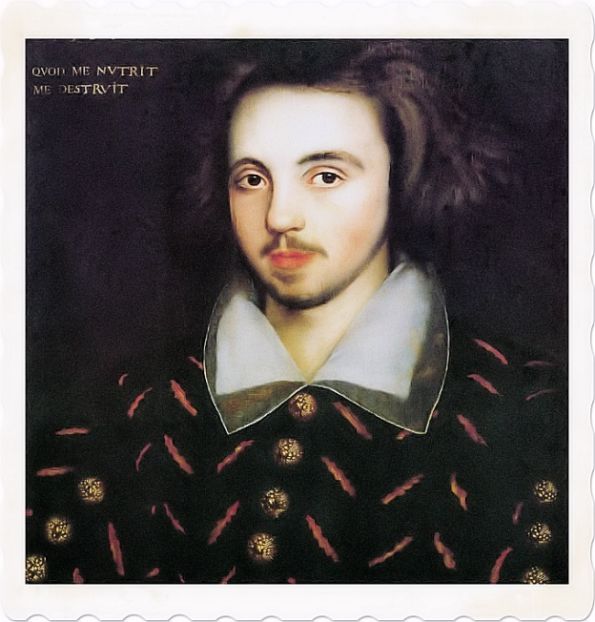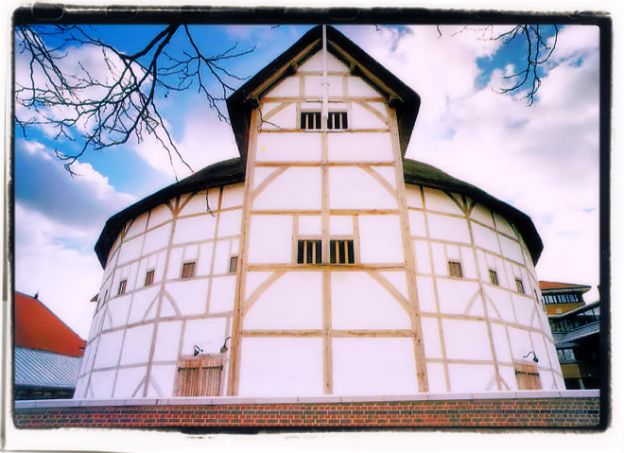
The greatness of Shakespeare, his literary originality shortly explained thanks to some authors quotes and a brief analysis of his style and two of his works.
Malvolio, the parody of puritan behaviour in Twelfth Night by William Shakespeare, reads the following lines from a letter he finds: “In my stars I am above thee; but be not afraid of greatness: some are born great, some achieve greatness, and some have greatness thrust upon ’em.”
Carl William Brown
Poor wretches that depend On greatness’ favor, dream as I have done; Wake, and find nothing.
William Shakespeare
He is not great who is not greatly good.
William Shakespeare
I have touch’d the highest point of all my greatness, And from that full meridian of my glory I haste now to my setting.
William Shakespeare
Lord Bacon told Sir Edward Coke when he was boasting, The less you speak of your greatness, the more shall I think of it.
William Shakespeare
The abuse of greatness is when it disjoins remorse from power.
William Shakespeare
We shall never overestimate Shakespeare, because we can not. Some men and things lie beyond the danger of hyperbole. No exaggeration is possible concerning them, seeing they transcend all dreams. Space can not be conceived by the most luxuriant imagination, holding, as it does, all worlds, and capable of holding another universe besides, and with room to spare. Clearly, we can not overestimate space. Thought and vocabulary become bankrupt when they attempt this bewildering deed. Genius is as immeasurable as space. Shakespeare can not be measured. We can not go about him, since life fails, leaving the journey not quite well begun. Yet may we attempt what can not be performed, because each attempt makes us worthy, and we are measured, not by what we achieve, but by what we attempt.
William A. Quayle (1860-1925), Some Words on Loving Shakespeare. From A hero and some other folk, 1900
Actors are so fortunate. They can choose whether they will appear in tragedy or in comedy, whether they will suffer or make merry, laugh or shed tears. But in real life it is different. Most men and women are forced to perform parts for which they have no qualifications. Our Guildensterns play Hamlet for us, and our Hamlets have to jest like Prince Hal. The world is a stage, but the play is badly cast.
Oscar Wilde (1854 – 1900) Irish writer and poet. Lord Arthur Savile’s Crime and Other Stories
So far as anybody actually knows and can prove, Shakespeare of Stratford-on-Avon never wrote a play in his life… Isn’t it odd, when you think of it, that you may list all of the celebrated Englishmen, Irishmen, Scotchmen … clear back to the first Tudors – a list of five hundred names, shall we say? – and you can learn the particulars of the lives of every one of them. Every one of them except one – the most famous, the most renowned – by far the most illustrious of them all – Shakespeare!
Mark Twain (1835 – 1910) – Pen name of Samuel Langhorne Clemens, the famous American writer, humorist, satirist, lecturer.

William Shakespeare might not have been born great but he definitely died great. He used words like Michalengelo used paints and marble, and Mozart used musical notes. Through his intricate weaving of wisdom through words, he survives as our contemporary today, almost 400 years after his death. Irrespective of the many theories about his identity, whether he is one person or more, we have his body as evidence, the body of works which we have learnt to appreciate and enjoy as a complete set. It is impressive to note that these works, which have become the cornerstone of classical education in English literature, were created by one who himself had no university education. His genius was natural and not schooled, and yet his understanding and portrayal of the complexity of human nature knows no equal. If speech is man’s greatest show on earth, then Shakespeare is undoubtedly the greatest showman. Harold Bloom, the Yale and Harvard scholar of note, ambitiously described him as having “invented the human”, and with each new reading of any of his plays this description becomes ever more realistic.
Martin Bugelli
When Sigmund Freud wrote: “Everywhere I go I find that a poet has been there before me.”, it is clear that he was mainly refering, but not only, obviously, to one of the greatest poet of all time, that is William Shakespeare.
Carl William Brown
The greatness of William Shakespeare rests almost entirely upon his vivid sense of observation, upon his uncanny psychological insight into human nature and upon his genuine ability, as the true creative artist, to synthesize by means of his imagination the play of the human passions into living poetry and drama. Because the abnormal states of mind came within the range of his mighty vision, and because he endowed his delineations of these states of mind with truth, intensity and power, he has been falsely raised to the pinnacle of special knowledge in psychopathology.
Edgar Irving I.
The fact is, Shakespeare was not sectarian; he pleaded nobody’s mission, he stated nobody’s cause. He has written with a view to be a mirror of things as they are; and shows the office of the true poet and literary man, which is to re-create the soul of man as God has created it, and human society as man has made it.
George Dawson (1821-1876), Shakespeare and Other Lectures
It is sometimes suspected that the enthusiasm for Shakespeare’s works shown by some students is a fiction or a fashion. It is not so. The justification of that enthusiastic admiration is in the fact that every increase of knowledge and deepening of wisdom in the critic or the student do but show still greater knowledge and deeper wisdom in the great poet. When, too, it is found that his judgment is equal to his genius, and that his industry is on a par with his inspiration, it becomes impossible to wonder or to admire too much.
George Dawson (1821-1876), Shakespeare and other lectures
The English Renaissance was a cultural explosion that took place between the late 16th and early 17th centuries in England. Influenced heavily by similar artistic changes across Europe, particularly the Italian Renaissance, the movement promoted advances in arts, literature and philosophy. Theater was a principle area affected by the movement, and Renaissance playwrights Christopher Marlowe, Ben Jonson, and William Shakespeare are considered by scholars to be among the greatest writers in history.

The works of the Renaissance playwrights were revolutionary in their choice of subject matter, use of poetic language, and incredible popularity. Many scholars consider the works of Marlowe, Jonson and Shakespeare to be the greatest in theater history. Productions of their plays have remained popular since the 16th century, and continue to constitute a large portion of live theater repertoire. As a poet, Edmund Spenser was really the one who synthesized all the attempts in the formal expression and all the ideals which had so much altered the literary contents: he was really the interpreter of both Elizabethan ideals and European Renaissance culture merging them into a many-sided production.
Prior to the Renaissance, theater in England had a precarious place. Depending on the religious and political views of the current monarch, plays were occasionally banned altogether. Most plays were either re-enactments of religious events performed for church festivals, or morality plays meant to impart a clear message from the church or monarchy to the audience. Traveling theater companies, particularly in the style of the Italian Commedia dell’arte, instilled a love of more complex plays in the English citizens. With the patronage of the theater-loving Queen Elizabeth, the Renaissance playwrights were given mostly free rein over subject matter and language.
Christopher Marlowe was the earliest of the popular playwrights of the time. His work dealt with mainly tragic subjects, characterized by heroes brought down by their ego. He used his plays as a means of political activism, a dangerous concept in an era where dissenters were frequently beheaded by monarchs. Experts believe his plays contain magnificent passages of prose and poetry, and include Tamburlaine, The Jew Of Malta, and The Tragical History of Doctor Faustus.
The Massacre At Paris, one of Marlowe’s final plays, entered dangerous waters by dealing with a contemporary event and including characters based on political figures still active in Marlowe’s time. Marlowe was arrested in 1593 for libel and heresy, but was let go quickly. Ten days after his arrest, Christopher Marlowe was stabbed to death in mysterious circumstances. Evidence has not yet proved conclusive, but some experts suggest that Marlowe was murdered by order of Queen Elizabeth’s personal secretary, Thomas Walsingham.

As Jessica Ellis wrote, the best known comedian of the English Renaissance was Ben Jonson, who had great success in the London theater scene in 1598 with the comical Every Man In His Humor. Jonson had a checkered youth, being branded on the thumb as punishment after killing a man in a fight. Frequently satirizing political officials, Jonson often found himself arrested or threatened by officials throughout his career. With the succession of James I to the throne of England in 1603, Jonson began writing masques for the royal court. Jonson often collaborated on these elaborate and expensive productions with Inigo Jones, a stage designer considered the father of modern stagecraft.
Anyway the most famous of the English Renaissance playwrights was William Shakespeare. This is due to the fact that unlike Jonson and Marlowe, Shakespeare wrote extensively in all genres, from bawdy comedies like Love’s Labors Lost to epic tragedies such as Hamlet and Macbeth. Some experts believe Shakespeare began his career by emulating Marlowe’s lyrical style, but soon developed his own. Shakespeare is also credited with popularizing new genres of plays, including the tragicomedy or romance.
About Shakespeare’s production, his life, his style, his subjects, tragedies, comedies, poems and historical plays, we could say so much – and from so many points of view – that a choice must necessarily be done in order to select the form of approach to this great English palywright. As a matter of fact, it is impossible to exhaustively deal with Shakespeare in this short article, because only a book entirely devoted to the author would, perhaps (but it is not sure), end up this massive and important subject. Let’s then assume that readers are already generally informed about Shakespeare’s life and chronological order of his works as well as about the subdivision usually made of the same.
After a brief introduction, we can face the author through the analysis of two works of his huge production, one belonging to the great tragedies, and one to the lighter comedies. The genius of Shakespeare is the result of the combination of several elements which made him skilled in many arts. A great dramatist and a great poet, a great builder of plots and of characters, a deep expert of human mind, let’s say quite a psychologist, an admirer of esthetics, an analyzer of passions, a man of his time open to all social and national problems, interested in performance more than in publication of his works, aware of the needs of his public, capable of detaching himself from his characters, but to share the miseries of human mind and to feel united to other people, Shakespeare was all this and it is really quite impossible to make people feel acquainted with such a genius if they don’t experiment the emotion of reading, or better of assisting to, one of his plays.

That’s why this approach to the author through the direct comment on his work seems profitable for the reader. Macbeth was probably written in about 1606. It deals with the life and torments of a Scottish baron who, pushed by his lust of power and by his wife, kills his king in order to succeed to the throne and is then destroyed by his feeling of guilt. As it usually happened, Shakespeare drew inspiration from the legendary world of Scottish tradition for the plot of the drama and worked on it in order to create his powerful characters. Some critics say that one of Shakespeare’s characteristics is the creation of heroes who are doomed to destroy themselves owing to their own behaviour: they are always brought to make a choice between good and evil and they choose evil and consequently destruction. This is in a sense true, but not so easy to be explained. Although not at all unaware of the problems and feelings of Elizabethan England, his works deal with superior themes, universally acceptable and specifically suitable to any period. He detected human mind and deeply analyzed passions and foibles of the men of yesterday like the men of today.
Let’s take Macbeth as an example: he can decide either to kill his king or not and by carrying on his murder he triggers off a series of events bound to bring him to death. What Shakespeare analyzes here is not only the destructive lust of power, but the complex mechanism of human mind. Why does Macbeth choose to fulfill his murdering plan? What force pushes him towards evil? It seems that Shakespeare tell us that these forces are inside us, as if man is able to choose, but his mind is too weak to distinguish the right way. In Macbeth the destructive forces of our inner life are well represented by the host of supernatural creatures – the ghost, the witches – who surround the killer. They represent anguish, terror, remorse and any feeling of the desperation of man facing a life of which he can’t really understand a lot.
Like in his other work’s, the hero is never alone in his hellish dance towards destruction. He is usually supported by other characters – in this play by Lady Macbeth whose madness represents the failure of human ambition – and by the natural background, as if all natural elements were involved in the tragedy of human life. Such a great psychological drama is strengthened by a powerful building of the plot which grows with no breath towards the climax of the tragedy, as if it was following a musical rythm. Finally, the poetic strength gives the final touch to the masterpiece: Shakespeare’s verse is vigorous and musical at the same time, imagery is at its best through the massive use of symbols and rhetorical contrasts, its dramatic power is once again unique.
A completely different atmosphere reigns in the comedy A Midsummer Night’s Dream. The comedy can be taken as an example of another way Shakespeare often used to build up his plots and bring a message: there are three plots in only one play. The first story is the one of the marriage of Theseus and Hippolyta at whose court other love affairs among young characters are developing in a series of misunderstandings. These misanderstandings are the result of the interference of another world, the fairy one, where another marriage is undergoing a difficult moment: the king and the queen of the fairs, Oberon and Titania, are quarrelling and their quarrels involve the human world. The third story is provided by a group of humble people who are rehearsing a play to be performed at the royal wedding in honour of their monarchs. The link between the three worlds giving birth to all the problems is provided by a humble elf Puck and by a humble man, Bottom (as his name points out) a weaver.

The three plots are perfectly interwoven one to the other and show Shakespeare’s mastery in dealing with such complex stories. Through lyrics, music and charme, the author brings us a message of harmony between the different levels of being in the Universe and between the different social groups. Not division, but continuity is the leit-motif of the comedy and a soft irony which is always useful to face the problems of life. Moreover, to Bottom’s group Shakespeare gives the task to forward a fundamental message: their play in the play means that the whole life is like a performance in which humour and love are necessary. As it often happens, the apparently less important characters are entrusted with a substantial task, as if to say that everyone and everything are important in the universe to sing a common harmonious melody.
About Shakespeare and the Renaissance you can also read:
William Shakespeare aphoristic dictionary (part 1)
William Shakespeare aphoristic dictionary (part 2)
William Shakespeare works, themes and articles
William Shakespeare and John Florio!
John Florio quotes, proverbs and aphorisms
William Shakespeare’s literary reputation!
Thoughts and literary quotes on Shakespeare
Aforismi geniali di William Shakespeare by C.W. Brown

